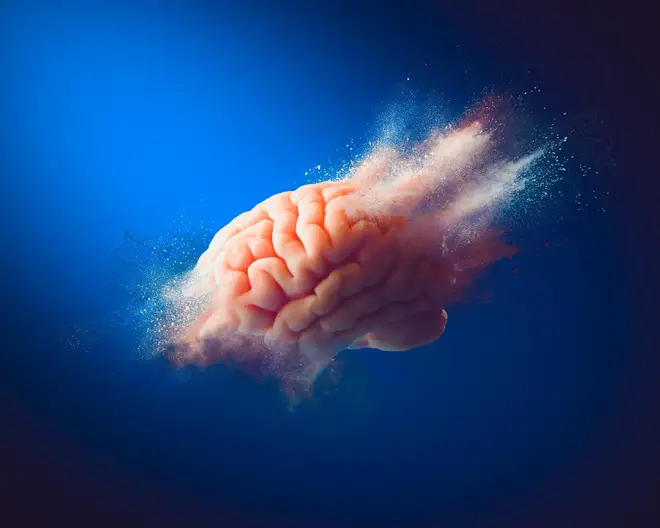
The development of Alzheimer’s disease appears to be heavily influenced by star-shaped brain cells called astrocytes, according to research conducted by the University of Pittsburgh School of Medicine. While amyloid aggregates were previously seen as a major cause of Alzheimer’s, this new study suggests that it is the combination of amyloid load and abnormal astrocyte activation, as expressed by blood markers, that predicts the future onset of Alzheimer’s symptoms, challenging the belief that amyloid alone is the most important component of Alzheimer’s disease. trigger disease.
What determines whether an individual will develop[{” attribute=””>Alzheimer’s disease, and why do many with the disease’s characteristic toxic amyloid accumulations in the brain never exhibit associated dementia symptoms? These perplexing questions have long puzzled researchers.
Scientists from the University of Pittsburgh School of Medicine seem to have unveiled the answer. According to their groundbreaking research published in Nature Medicine, star-shaped brain cells known as astrocytes play a crucial role in the progression of Alzheimer’s disease.
By testing the blood of more than 1,000 cognitively unimpaired elderly people with and without amyloid pathology, the Pitt-led research team found that only those who had a combination of amyloid burden and blood markers of abnormal astrocyte activation, or reactivity, would progress to symptomatic Alzheimer’s in the future, a critical discovery for drug development aimed at halting progression.
“Our study argues that testing for the presence of brain amyloid along with blood biomarkers of astrocyte reactivity is the optimal screening to identify patients who are most at risk for progressing to Alzheimer’s disease,” said senior author Tharick Pascoal, M.D., Ph.D., associate professor of psychiatry and neurology at Pitt. “This puts astrocytes at the center as key regulators of disease progression, challenging the notion that amyloid is enough to trigger Alzheimer’s disease.”
Alzheimer’s disease is a neurodegenerative condition that causes progressive memory loss and dementia, robbing patients of many productive years of life. At the tissue level, the hallmark of Alzheimer’s disease is an accumulation of amyloid plaques—protein aggregates lodged between nerve cells of the brain—and clumps of disordered protein fibers, called tau tangles, forming inside the neurons.
For many decades brain scientists believed that an accumulation of amyloid plaques and tau tangles is not only a sign of Alzheimer’s disease but also its direct culprit. This assumption also led drug manufacturers to heavily invest into molecules targeting amyloid and tau, overlooking the contribution of other brain processes, such as the neuroimmune system.
Recent discoveries by groups like Pascoal’s suggest that the disruption of other brain processes, such as heightened brain inflammation, might be just as important as amyloid burden itself in starting the pathological cascade of neuronal death that causes rapid cognitive decline.
In his previous research, Pascoal and his group found that brain tissue inflammation triggers the spread of pathologically misfolded proteins in the brain and is a direct cause of eventual cognitive impairment in patients with Alzheimer’s disease. Now, almost two years later, researchers revealed that cognitive impairment can be predicted by a blood test.
Astrocytes are specialized cells abundant in the brain tissue. Just as other members of the glia—resident immune cells of the brain—astrocytes support neuronal cells by supplying them with nutrients and oxygen and protecting them from pathogens. But because glial cells don’t conduct electricity and, at first, didn’t seem to play a direct role in how neurons communicate with one another, their role in health and disease had been overlooked. The latest research from Pitt changes that.
“Astrocytes coordinate brain amyloid and tau relationship like a conductor directing the orchestra,” said lead author of the study Bruna Bellaver, Ph.D., postdoctoral associate at Pitt. “This can be a game-changer to the field, since glial biomarkers, in general, are not considered in any main disease model.”
Scientists tested blood samples from participants in three independent studies of cognitively unimpaired elderly people for biomarkers of astrocyte reactivity—glial fibrillary acidic protein, or GFAP—along with the presence of pathological tau. The study showed that only those who were positive for both amyloid and astrocyte reactivity showed evidence of progressively developing tau pathology, indicating a predisposition to clinical symptoms of Alzheimer’s disease.
The findings have direct implications for future clinical trials for Alzheimer’s drug candidates. In aiming to halt disease progression sooner, trials are moving to earlier and earlier stages of pre-symptomatic disease, making correct early diagnosis of Alzheimer’s risk critical for success. Because a significant percentage of amyloid-positive individuals will not progress to clinical forms of Alzheimer’s, amyloid positivity alone is not enough to determine an individual’s eligibility for therapy.
Inclusion of astrocyte reactivity markers, such as GFAP, in the panel of diagnostic tests will allow for improved selection of patients who are likely to progress to later stages of Alzheimer’s and, therefore, help fine-tune the selection of candidates for therapeutic interventions who are more likely to benefit.
Reference: “Astrocyte reactivity influences amyloid-β effects on tau pathology in preclinical Alzheimer’s disease” by Bruna Bellaver, Guilherme Povala, Pamela C. L. Ferreira, João Pedro Ferrari-Souza, Douglas T. Leffa, Firoza Z. Lussier, Andréa L. Benedet, Nicholas J. Ashton, Gallen Triana-Baltzer, Hartmuth C. Kolb, Cécile Tissot, Joseph Therriault, Stijn Servaes, Jenna Stevenson, Nesrine Rahmouni, Oscar L. Lopez, Dana L. Tudorascu, Victor L. Villemagne, Milos D. Ikonomovic, Serge Gauthier, Eduardo R. Zimmer, Henrik Zetterberg, Kaj Blennow, Howard J. Aizenstein, William E. Klunk, Beth E. Snitz, Pauline Maki, Rebecca C. Thurston, Ann D. Cohen, Mary Ganguli, Thomas K. Karikari, Pedro Rosa-Neto and Tharick A. Pascoal, 29 May 2023, Nature Medicine.
DOI: 10.1038/s41591-023-02380-x
The study was funded by the National Institute on Aging and the Alzheimer’s Association.
#Alzheimers #Breakthrough #Blood #Biomarkers #Discovered